After Edu
A look at the future of the role, including a huge deep-dive on potential candidate Roberto Olabe of Real Sociedad. Is he the right man for the job?
The Edu is gone. Long live the Edu.
The chapter he closed was full of upward trajectory, discipline, and relative clarity of decision-making. Edu, by every public account I can find, was respectful and respected, charming and warm; his transfer record boasts a series of shrewd dealings.
If there was ever doubt about his influence, Arteta added a telling clause to a sentence about the £30m signing of captain Martin Ødegaard from Real Madrid.
“We saw — Edu insisted — that [Ødegaard] was a player with huge talent that we could develop. He keeps growing. He’s done it in an amazing way. So natural.”
Edu’s chapter, however, left some plot points dangling. Where is the final phase? Where are the two biggest trophies? When is the next open-top bus parade?
With those questions in the air, the decision around a chosen successor feels all the more portentous.
What does a sporting director do?
The wonderful James McNicholas published a story in the Athletic outlining potential candidates for the position. From that piece:
Sporting director is, by its nature, a broad position in which practitioners with varying specialisms can excel. Some are experts at talent identification, be that through traditional scouting or data analytics. Others are technically minded, spending their time on the training pitch, in close contact with the manager and coaching staff. Some are executives, some ex-players, some steely negotiators and others focused on building relationships. Arsenal must determine what blend will most complement manager Mikel Arteta.
Edu's former deputy Jason Ayto has taken the reins as a new candidate is identified. On a wider level, managing director Richard Garlick, Executive Vice-Chair Tim Lewis, director of football operations James King, and head of recruitment James Ellis loom large. With Per Mertesacker and Clare Wheatley in tow, the club is also fortunate to have capable hands leading the academy and women’s team. The men’s team is likely to be the focus of the search.
While this may seem like a surplus of chefs, one area has been greatly streamlined thanks to Edu: the “football intelligence unit.”
This was an overhaul of a setup which had become bloated and had a clear separation of power between the recruitment and analytics departments, which had evolved from the club’s 2012 purchase of data provider StatDNA. Edu sought to make that line invisible, to bring alignment between analytics and recruitment. Rather than the two separate processes existing on different wavelengths and producing different findings, they were merged into one entity.
It was known as the football intelligence unit. It may not generate headlines in the way a mega-signing does, but for the people operating within the new structures Edu created and built over time, it gave them a unified way of working that had been sorely lacking.
All of this, of course, has featured active involvement from not only Mikel Arteta, but his coaching cadre.
Members of Arsenal’s coaching staff have exerted an increasing influence over first-team recruitment. That came to a head late this summer, when the club found themselves embroiled in a convoluted deal for Joan Garcia, a goalkeeper at Espanyol in Spain’s La Liga. In the final 48 hours of the window, an exasperated Edu had to extricate Arsenal from that negotiation and pivot to signing Bournemouth’s Neto on loan.
Some of that unwieldiness shouldn’t be immune from critique. And though there is so much involvement from others, that is not to say the portfolio is limited.
“The hardest part of the job is the expectation to be everything to everyone,” said Matt Wade, former head of sporting strategy at Feyenoord, and current assistant GM at Angel City FC. “You are the leader of a multi-faceted department that covers everything ranging from guys who code data models to medical, performance, operations, coaching, recruitment and player development. You are expected to have a level of competency across all these things and develop people. The hardest part is this unrealistic expectation to be everything to everyone.”
Victor Orta’s description to the Athletic? “I feel like a bin.”
As always, it depends. The role, and even the title, varies widely from club to club, and includes anyone from virtually unsackable heavyweights to paper-pushers desperately clinging to the next result. The more likely dichotomy is between a leader concentrating on the direction of the project, and a manager (lower-case “m”) who is more of a day-to-day consensus-builder-slash-firefighter.
A hastily-made job description
It’s probably worthwhile to begin by reiterating the limits of the role. The vision and temperament of the ownership and board, not to mention the history of the club itself, likely matter most to the success of a footballing project. An ingrained culture is unlikely to change with a single hire.
But it’s fair to presume that Arsenal will seek long-term, stable leadership in the position.
What might the person do? Let’s start with a sloppy list.
Big picture:
Identity: Maintaining and driving the club’s overarching long-term footballing strategy, philosophy, objectives, and results — and how they’re measured and communicated.
Collaboration and Alignment: Working with the ownership, manager, scouts, and board to align on strategy, style, and decisions. Maintaining and growing relationships with the footballing world writ large.
Day-to-day:
Recruitment and Negotiation: Building the squad by identifying, signing, negotiating, and selling players to meet tactical and financial goals. This responsibility may be more ancillary; according to reports, Garlick is often the primary negotiator.
Squad Planning: Ensuring balance, depth, and long-term development across all positions.
Youth and Development: Working with the Academy Manager, overseeing the academy and integrating academy players into the first team.
Hiring & Operations: Identifying and hiring staff, managing facilities, leading budgeting and infrastructure.
Why identity matters
I put “identity” first for a reason. From my vantage point, a coherent sense of identity is the most important part of any project. With it, anything is possible; without it, you are swimming upstream.
Atomic Habits is the exact kind of airport self-help book that I usually skillfully avoid. In a moment of weakness a few years back, I picked it up and read it in one sitting.
One of the little takeaways was that good habits can only multiply when they’re first congruent with a sense of identity. As an example, if you’re the type of person who says “I’m not good with names,” that’s an identity you’re creating, and a good habit (in this case, remembering names) is unlikely to glob onto that sense of self. If you tell yourself, “I’m working really hard to get better with names,” you might have a better chance.
Likewise, when looking to change, it’s human nature to start with the desired outcome. But it’s most effective to start with identity, and then build processes that prove that identity in small wins, and not the other way around. Here’s a simple visual from the book:
As such, you want a club’s identity to be established first, and then let it permeate through all successive actions: hires, coaching philosophies, talent identification, training methods, youth apparatus, and the like.
Identity is a powerful force multiplier. If you can decide, communicate, and then prove your identity through countless corresponding actions, decisions start to make themselves. Players and staff will self-select in or out of your project with less prodding. The team will play with more forcefulness and clarity. Contingency plans will quickly be revealed. Fans will understand what you’re about, and show the patience or urgency the moment requires.
If you don’t have a coherent identity — take Manchester United of late, for example — you’ll wind up making a bunch of scattered, individual decisions. The thing is, these decisions are usually defensible in a vacuum. In the end, though, the sum will be worth less than the parts.
Agreement vs. alignment
The vision of the project can come from the ownership and board. The long-term footballing philosophy should come from a stable foundation of patient custodians. The manager should have an active, though not hegemonic, role in all of this. All parties should come with perfect alignment, but not perfect agreement. Why?
A Premier League manager shouldn't be deciding valuations, writing Python scripts, or watching 30 matches of some defensive midfielder in Belgium. With everything else on their plate, some reasonable boundaries should be acknowledged.
On the other side, a Sporting Director — or, God forbid, an owner or board member — shouldn’t be tinkering with specific tactics or lineups.
With this different information, context, and relationships, there will often be differing conclusions. That is fine and expected. But one hand washes the other; the important thing, if there is a disagreement, is to disagree and commit.
This is evidenced in the contrasting tenures of Brendan Rodgers and Jürgen Klopp at Liverpool. Rodgers, for example, essentially agreed to Firmino as a barter for Christian Benteke.
Rodgers dug his heels in twelve months later and effectively agreed with Michael Edwards that if the sporting director in waiting allowed him to sign Christian Benteke, he would not get in the way of Roberto Firmino’s recruitment. In going for Benteke – who had always done well against Liverpool – Rodgers was getting what he wanted in a target man but it felt like he was abandoning his beliefs.
Benteke is no slouch, mind you — 28 G+A in the MLS this year, by the way! — but he was not exactly what Liverpool needed, and was gone in a year.
Klopp, on the other hand, initially wanted Julian Brandt, but more readily accepted the limits of his purview. That was to his benefit, to put it mildly.
“Michael, Dave and Barry convinced Jürgen to go for [Salah] and he was gracious enough to speak publicly about the part they played in that,” said Ian Graham, former Liverpool Director of Research. “Jurgen would say, ‘OK, I like this guy, but I haven’t watched hundreds of games like the scouts have and I haven’t done the analysis like the data department have, so I’m going to have an open mind and take a serious look’.”
We all know how that turned out.
Reader beware. Such memoir-friendly stories always cast tidy heroes and villains. In that particular one, though, it’s clear to see which approach worked best.
What I’d look for
There’s the old business truism that “culture eats strategy for breakfast.” Arsenal are fortunate to have owners who genuinely take the long view instead of paying lip service to it, and a manager who can clearly articulate his philosophy.
Now that a compelling direction has been achieved, the next chapter can be written. In those pages, a healthy push-and-pull is not only to be expected, but desired. With so much empowerment through the org, a strong leader feels necessary — first, to serve as a shepherd of the club’s identity, then to confidently navigate the aims of all parties involved, eliminating any little decision-making inefficiencies that may have cropped up as individual responsibilities have grown. With mighty capable forces swirling, and the footballing world only getting murkier and more complicated, the situation seems to call for a leader who is worthy of some deference, not by default, but by merit. One who has huge aspirations.
Who might that be?
For today, let’s head back to Basque Country, as we always seem to.
(There are worse places to visit.)
Enter Roberto Olabe?
(My opening caveat is that this is a tricky role to research, and there’s a possibility I get something wrong here.)
When considering options, the person I was most interested in reading about was Roberto Olabe. La Real is something of a second club for me; I don’t want to overstate things, as it’s nothing deeper than I like watching them and enjoy the way they operate. Still, I didn’t feel like I had an encompassing read on Olabe.
Within ten days of Edu’s departure, David Ornstein reported that the Real Sociedad director would be leaving at the end of the season, despite having a contract running until June 2026, putting “some of the game’s leading clubs on high alert.”
Hey, I know a leading club. Arsenal was quickly mentioned as a possible destination.
These links make a lot of sense on the surface. Let’s look at his background.
Olabe was a goalkeeper. After featuring for some Juanma Lillo-led Salamanca sides in the mid-nineties, and wrapping up his career as a backup at Real Sociedad, he transitioned into youth coaching, guiding the U18 side to a national title. His former position could theoretically help him lend some stability to positional recruitment which has had more churn than others.
In 2001-02, the senior club was in trouble. A side that featured young captain Xabi Alonso was languishing in the relegation spots well into late-March. Olabe stepped in as coach, helping deliver a 13th-placed finish and safety in the top-tier. In a move that can be described as fairly chad — I think I’m using that right — he was then suspended for “coaching with a qualification that does not correspond to the required level, or doing so without a licence,” but he couldn’t serve that suspension — because he had been promoted up to sporting director.
In his first summer in charge, Olabe spent all of €1.6m, at least according to transfermarkt — relying on a series of frugal moves and free transfers to improve the side. This initial work included the additions of Valeriy Karpin (midfield), Gabriel Schürrer (CB), and Sergio Boris (CB), who combined to make 85 league appearances in the next year. For contrast, Real Madrid had spent successive summers signing Luís Figo, Zinédine Zidane, and Ronaldo.
Some strange chemistry took place in San Sebastián, however, and the team exploded with results — going unbeaten in the league all the way into February. The title race was taken until the final day. The Galácticos edged it out by two points.
It was quite the debut in the role for Olabe, and while his additions helped, much of the foundation was already laid. But progress is not a straight line, and things were anything but straightforward from there. The thin team struggled to compete across multiple competitions in the follow-up campaign. As the months unfurled, they fell back to a place in the lower-midtable.
The largest signing of his first stint leading recruitment at Real Sociedad was — drumroll please — Mikel Arteta. He was bought from Rangers for €4m as a potential batterymate for his childhood friend Xabi Alonso. It was a homecoming.
After seven years away, Arteta was heading home. He and his friend Alonso would cross the white line walking side by side again, and the innocent yearnings of children, to whom playing together for Real Sociedad was once little more than a dream, had become a reality for the young men.
Alas, it was just a tease. New Liverpool primo Rafa Benítez wanted one Alonso, and one Alonso he received. Six weeks after Arteta joined, the two friends were apart again.
In their native province, both Arteta and Olabe would struggle to find their footing.
Arteta had trouble earning time, logging only three career league starts as a Royal. It wouldn’t be long before he was following Alonso to the Premier League, joining David Moyes on the other side of Stanley Park in Merseyside. (Moyes would later coach Real Sociedad for a year too, remember? Yes, this kind of thing is going to keep happening.)
Arteta recalled pulling over to a roadside bar in Spain after listening to Liverpool coming back in the final.
“Yes, it was strange to watch Liverpool win the Champions' League as I was trying to become an Everton player," he told The Independent, “but it wouldn't have made me happy to see my friend lying there on the floor in tears," he explains. “They won it, good luck to them, but I was just happy for Xabi.”
Meanwhile, Olabe found himself on the outside of his beloved club after lackluster results and the elections of 2005.
For his next act, Olabe joined UD Almería as sporting director. The club was looking to get its way out of the Segunda División. In that role, he was responsible for appointing the head coach, and he chose — I told you this kind of thing is going to keep happening — Unai Emery. Together, Almería achieved promotion for the first time in twenty years. (Emery, a former youth graduate of Real Sociedad who did something-or-other at Arsenal, reportedly jockeyed for Olabe to join him at Villa, but was unsuccessful).
We’ll speed-run the next part of his career. Here’s what he did in the next phase:
Sporting director of Real Valladolid; the recently-promoted team wasn’t able to get out of the basement, and was relegated after 2008-2009.
A period as an executive for La Liga “aiding the education of coaches in Central America.”
Coach of third-tier Real Unión for 2011-2012.
Four years as director of football for the Aspire Group in Qatar, where he was tasked with designing a football department in advance of the 2022 World Cup.
A return to Real Sociedad. This one lasted all of eight months (perhaps because his portfolio was more limited at the time?).
A departure to serve as director of football strategy for Independiente del Valle in Ecuador. That club has been in the midst of a Golden Age, racking up trophies while developing players like Moisés Caicedo, Kendry Páez, Kevin Rodríguez, Gonzalo Plata, and Piero Hincapié. His direct involvement is unclear.
Throughout his story, there are triumphs, scars, failures, confusing steps, high-level executive positions, and third-level coaching roles. The half-full case is that he has vast experience and connections throughout the globe, up and down the pyramid and throughout the org chart; the half-empty case is that this path wasn’t necessarily one of linear success, and he’s never worked in England.
By the time he returned to Real Sociedad for a third time, though, Olabe had earned himself wide-reaching responsibilities. This includes influence on overall strategy, recruitment, development, and the women’s side he helped start in 2004.
He employed these responsibilities to great effect.
👉 Development model
Last night, Real Sociedad played a fifth-tier side in the first round of the Copa del Rey. They won 5-0.
As my friends at SCOUTED wrote:
Ten of the Erreala starting eleven are a product of the club's academy, with only three of the 21-man squad not coming through their Zubieta youth system.
Historically, the club followed a Basque-only policy similar to Athletic Bilbao. That policy continued for thirty years, but was put to the test — and ultimately put to rest — in the late-1980s, with other clubs (including Athletic) swirling and signing some of their best players. This exodus included another influential Basque in Txiki Begiristain who, of course, would team up with Pep Guardiola on Johan Cruyff’s “Dream Team.” The two have flourished as a director/manager partnership for both Barcelona and Manchester City in the decades since, and may serve as the ideal delineation of responsibilities between the two roles.
(I keep using this piece as an excuse to marvel at how tiny the football world can be. I haven’t figured out the right place to add this detail, so I’ll pop it here: as a teenager, Mikel Arteta’s first professional appearance — his only appearance for Barcelona — was in relief of Pep Guardiola.)
So what is so special about this region and this club?
Olabe points to the surrounding environment — the cuadrillas (groups of friends) and sociedades gastronomicas, where people cook together.
Most interesting, perhaps, is the philosophy of Zubieta, Real Sociedad’s training ground. Kids are allowed to be kids; the lurch toward the professional is done at a measured pace. I can’t speak Basque, but on this, they are firmly speaking my language — the pressure just starts too soon for my liking. The Erreala ask players to stay with their friends and families until the time is right.
As described in an ESPN profile:
That process starts at 13, which is late compared with many clubs. Iriarte is a qualified teacher, something he shares with around 60% of the staff in the academy -- schooling is part of the process, and their approach is integrated with the educational policy of the Guipuzcoa government. That means there's no push for specialisation or professionalisation early; kids are instead expected to participate in many sports. Real Sociedad don't sign players earlier, and they don't shed them early either: there is no annual "cull," and they commit to keeping every player for at least the first two years. To playing them, too: the focus is more on development than recruitment, keeping turnover low.
It’s a refreshing view.
“Are we 100% certain that all the PE teachers are doing things well?” said Academy Director Luki Iriarte to Cano Football. “No. But we know that the kid that’s coming here at 12-years-old has played handball, basketball, done cycling and many other sports. We believe that all this helps us to have an open-minded, more flexible individual.”
Olabe, as well, is most at home when talking long-term.
“I have been in clubs where I have had to sign 17 players or where the objective forced many changes each year,” he said. “And I have not felt so comfortable. The ones I have most identified with are those where the objective is the development of talent.”
It is on this topic — on youth, culture, and patience — that I find Olabe to be at his most compelling, articulate, and poetic.
He says to focus on a player’s “possibilities, not their limits.” He continues: “People tend to say 'this player lacks this,' or 'he needs to develop that.' We have to change that focus to adapt our work to what they do have, the focus on the player — every single one of them. They all have their own programme of individual improvement to turn those qualities into a capacity to compete. To think: 'Why not?'"
“To cook you need ingredients and water, but you also need time," Olabe says. "There are some risks, of course, but we take players late, not early, and then we want stability, consistency, continuity. On average, the players in the first team have been at the club for 12 years. In the Sanse team, it's eight years. Overall, it's 7.8 years. That speaks to the stability, and it's a key part of this process. We want them to reach that final step consolidated, ready.”
Elsewhere, he continued:
“I always say, not at 12, not at 15, not at 17, not at 18, nor at 20 are you going to know what an architect or a stonemason will be like, so I don’t expect that of a footballer either. Like all professions, you need time to learn, in an aggressive and immediate world, exposed to public opinion, we have to have patience and commit to the development of the youngsters.”
These youth products have made a huge impact on football in general — think Alonso and Griezmann — but they also made a particularly huge dent on Euro 2024.
Spain won the trophy with pivotal contributions from Robin Le Normand, Martín Zubimendi, Mikel Merino, and Mikel Oyarzabal. Only Barcelona players have given Spain coach Luis de la Fuente more minutes since he took over.
👉 Recruitment model
This philosophy starts from within.
“We will always look inside first. What we want is precisely that, that we be identified with the development of talent and that people who identify with it want to come from out there. We believe in young people, in the strength that our own philosophy gives us.”
The club thrives within its constraints, using them as a foundation rather than a limitation. With an average squad age of 25.2 years, they are the second-youngest team in La Liga, trailing only Barcelona. Olabe and Company have built a squad valued at €443.70m during the 24-25 season — fourth in the league, and a leap from €232.95m in 17-18. The average player value has nearly doubled in that span.
Though young, the squad-building approach is deliberate and selective, relying on a balance of youth and experience. The oft-replenishing youth movement has enabled the club to complete just 64 transfers since 18-19, ranking 248th-most worldwide.
Olabe has never spent more than €20m on a single player. By comparison, West Ham made four signings this summer that exceeded the Real Sociedad club record. Maximilian Kilman (€47m) cost more than double the fee they’ve paid for anyone, ever.
Even with such modest expenditures, they’ve achieved a position as the 23rd-most valuable club globally, ahead of names like Napoli, Monaco, and Sporting CP. Hertha BSC, in their second consecutive year in the Bundesliga 2, have spent more in the years since Olabe was put in charge. Over the past decade, no Spanish club has generated as much gross profit from transfers.
Some highlights on the recruitment front include:
Alexander Isak: Signed from Borussia Dortmund for €15m. Sold to Newcastle United for €70m in 2022.
Martin Ødegaard: Spent a pivotal season on loan from Real Madrid in 2019-20. Thanks!
Mikel Merino: A linchpin in midfield after his arrival in 2018 for €12m.
David Silva: Joined in 2020 as a free transfer after a legendary career at Manchester City.
Nacho Monreal: Signed from Arsenal in 2019, the veteran defender brought stability and experience to Sociedad’s backline.
Asier Illarramendi: The Zubieta product returned in 2015 after a stint with Real Madrid. He served as captain for several years.
Takefusa Kubo: Signed from Real Madrid in 2022 for €6.5m. Kubo has flourished as a creative and versatile forward, delivering goals and assists.
…and many others
By and large, the model has been to develop from within, then soberly audit the squad list to see what is missing — whether that be experience, explosiveness, or creativity — and proactively gain those qualities elsewhere.
Olabe calls that “throwing a bomb.”
"From time to time we have to throw a 'bomb' in too, add people who are nothing to do with our context. We will always look inside -- that's a question of credibility too, as the players coming through feel like participants when they can see that they're here to help -- but that there will be times where we see a gap in the succession or we'll see a need that we can't cover, a weakness. Maybe there's a generational change we need to confront, as there was three or four years ago."
The bomb went off in the 2020 Copa del Rey. To reacquaint myself with that team, I just went back and speed-watched the quarterfinal against Real Madrid, as well as some other matches from my Merino study. For those transfer window dreamers, here’s Ødegaard scoring after a spilled shot from Isak.
As a Madrid player, Ødegaard doesn’t celebrate.
…and here’s Isak delivering a cross for Merino to finish.
Isak went wild in that one — adding two goals beside this, including a volley and a roofer. He had two more great chances, and one goal marked off from an offside.
I’ve joked that Arteta fell in love with that season’s team and has since attempted to hit “select all → add to cart” on Ødegaard, Isak, Merino, Zubimendi, and more.
There have been some misses by Olabe, though they’ve generally been few and small. The exception is the record signing: Umar Sadiq just hasn’t panned out relative to expectations. Mohamed-Ali Cho (who I loved) was jettisoned without finding success.
The external signing log is filled with players like Brais Méndez (€14m) — intelligent, measured bets with a high likelihood of working out. It’s worthwhile to wonder how Olabe’s skills will “scale up” when the amounts, competition, and financial risks get higher.
This year, there seems to be an acknowledgment that this, at last, is a reloading year after several years of stability and comfort. The depth of that dip, if there is one, is yet to be seen. Martín Zubimendi notably stayed on after an approach from Liverpool, but players like Merino and Le Normand have parted ways. In their stead are savvy arrivals like Nayef Aguerd (loan, what a move) and Sergio Gómez (fresh from Man City). The real outlay was on promising prospects like Orri Óskarsson (a striker I’m really excited about) and Luka Sučić (in midfield), but they may require an adjustment period.
👉 Game model
Imanol Alguacil, Olabe’s former teammate, had bounced between roles while coaching the club's youth and reserve teams, also finishing out the 2017-18 season as an interim coach at the senior level. When Asier Garitano was fired during Olabe’s first year back in charge, they turned again to Alguacil, and haven’t looked back since.
The club has implemented a playstyle that wouldn’t look unfamiliar to Arsenal fans. Employing an aggressive, high-press 4-3-3 look, the team generally plays like a snappier Arsenal. This intensity and ambition doesn’t turn down when facing larger opponents.
As we saw when we did the Merino report, the pressing shape looks familiar — but is probably more comfortable with risk.
The 4-4-2 block is a little bit more active, but from a shape and distance perspective, it also calls from many of the same principles as Arsenal.
…and the 4-3-3 build-up shape has many expected, positional principles — with a touch of Route One directness thrown in. The primary difference is that Real Sociedad don’t look to invert their full-backs. With their budget, that is wise, as those players are generally rare and expensive. Kieran Tierney fit this shape, as does Sergio Gómez.
When comparing the two teams overall, Real Sociedad is younger, with an average player value of one-third of Arsenal.
And as you’ll see below, they’ve never come close to Arsenal’s expenditures, but have topped Arsenal on sales in three of the last six years.
🔥 Final thoughts on Olabe
This has been a lot to write on a single potential sporting director candidate, even for me. That’s fine — I was mainly using it as a conduit to think about wider topics.
The case for Olabe is fairly straightforward. He has wide-ranging experience and connections worthy of the role. Relative to market, he can place his track record with virtually anybody on the planet. He has consistently been able to balance youth development with results, and is both people-driven and analytical, all while nabbing undervalued players and increasing the reach and budget of his project with every year. He’s had impact in the women’s game. He’s got plenty of Arsenal connections, too. His gravitas means he won’t get run over.
That sense of weightiness and confidence is important here. While player searches are “deductive,” the final decision is often “intuitive” — and the sporting director is often the one making that call. Perhaps he could even put in a good word with Isak or Zubimendi.
But what is most compelling is the clarity with which he communicates the direction of a project. When we outlined the responsibilities of the role at the outset, the first two bullets were “Identity” and “Collaboration & Alignment.” Olabe has a clear, passionate, almost poetic way of articulating his vision and getting everybody pointed in the same direction, particularly when it comes to long-term youth development. The cohesive, building, year-over-year vision on this could improve as Arsenal up their investment in the younger age groups. This level of communication is particularly important as more people within the org gain power and the potential for chaos and bureaucracy rises. He could be Arteta’s Txiki.
What’s the case against Olabe? For one, there can be an argument that he’s not yin-and-yang enough for Arteta. Where Edu’s warmth and charisma (and delicious grilling) could cut through tensions as they arise, Olabe feels more in line with the player he once signed — similarly intense and detail-obsessed. He comes off as more of a kindred spirit than a counterweight. Is that additive enough?
There were murmurs of tensions with Alguacil. He didn’t exactly dispel the notion in his farewell press conference. This gives you a sense of his direct way of addressing things, which I don’t consider a critique, especially considering their long-term success together.
“I have never gone to my workplace to make friends or enemies. Imanol and I often don’t think the same thing, but that’s where the richness lies. Thinking the same thing possibly makes us stronger, but with a different opinion we will be better, because we will look for what is behind that different opinion. Imanol and I have a good professional relationship, which does not lead us to have one outside of Zubieta. It may be part of the wear and tear I talked about before. But the reason for my decision is not my relationship with Imanol, nor, as I have told you, do I have anything.”
I’d have a few other concerns, some more founded than others. Here’s one: I generally like the dichotomy of a “football leader who appreciates data” matched with a “data leader who knows football,” as we saw with the Klopp-and-Edwards examples. Arteta and Olabe are no rubes, and are both astute and analytical. But is the data side represented at a high enough level in that relationship? This can be overcome fairly easily, so it’s just a thought.
Another question is how much of Olabe’s secret sauce is built into the unique characteristics of the Real Sociedad project. The youth setup, the Basque-centricity, the definitions of success, the sales, the budgets — these don’t all neatly port over to a Premier League club as large as Arsenal. How will he do with fewer so-called constraints? Were those constraints part of what made him special?
There are other interesting candidates. After the Edu news broke, the very first candidate I wrote down was Monaco CEO Thiago Scuro, who was quickly linked. I’ve been marvelling at the clarity of their squad-build, and really respected his experience, at least on the surface. It appears he is now out of the running.
Luis Campos of PSG is a titan deserving of an article of his own. He can credibly claim to be the best talent-spotter in the world: Bernardo Silva, Fabinho, Osimhen, Leao, Gabriel, oh my — you’ll mention who I’m forgetting — and he was on the other end of the phone during those Nicolas Pépé negotiations. His signing would change the project like no other. It wouldn’t be without risk, and some of his work at PSG has gotten more unwieldy and inefficient of late, as seen in the cases of Randal Kolo Muani, Manuel Ugarte, and Gonçalo Ramos. The rest of the list is impeccable as always: Neves, Doué, Barcola, Vitinha, Pacho, Nuno Mendes, and more 😍. I have some difficulty seeing it happening for reasons I have trouble articulating.
Elsewhere, I’m most intrigued by the mentions of Simon Rolfes (Leverkusen) and Markus Krösche (Eintracht Frankfurt). I’ve seen Braulio Vázquez (CA Osasuna) floated, but that feels like too big a step. For Carlos Bucero, I wasn’t too impressed with Atlético de Madrid’s summer, but don’t know enough outside of that. Phil Giles (Brentford) has done incredible work, but my first impulse is that the Brentford project has unique characteristics, and many of his skills exist internally. I’m open to it as I research more — I tried to create a ranking system but failed. There are more than a few projects I’d like to check out in more depth, and will do so as the situation requires.
Edu’s departure isn’t the end of a story — it’s the turning of a page. As a candidate, Olabe looks formidable and unique. While it is possible to overstate the impact of a single hire, and broader club environment still matters the most, the next author will have a serious say in what is written over the next ten years. That is no small thing.

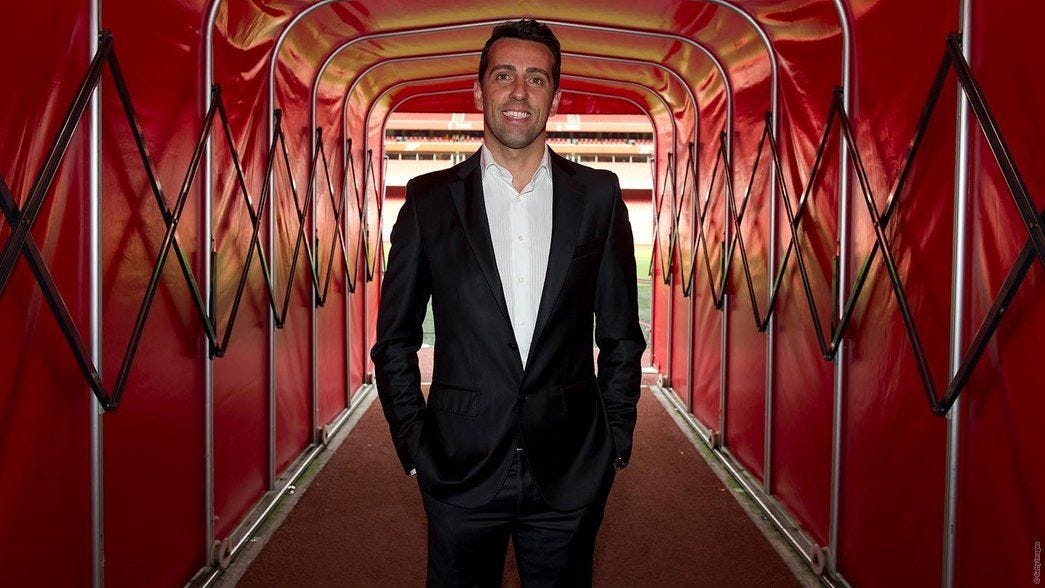
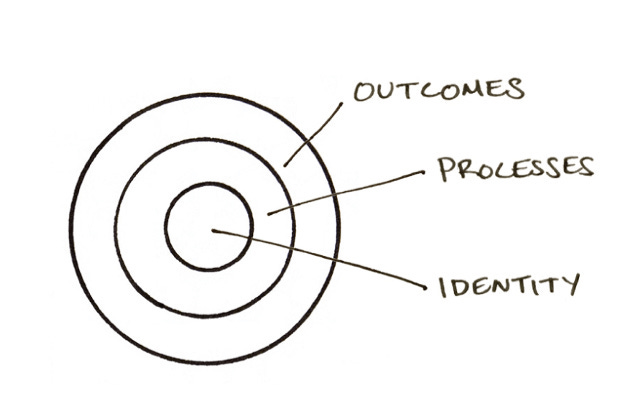
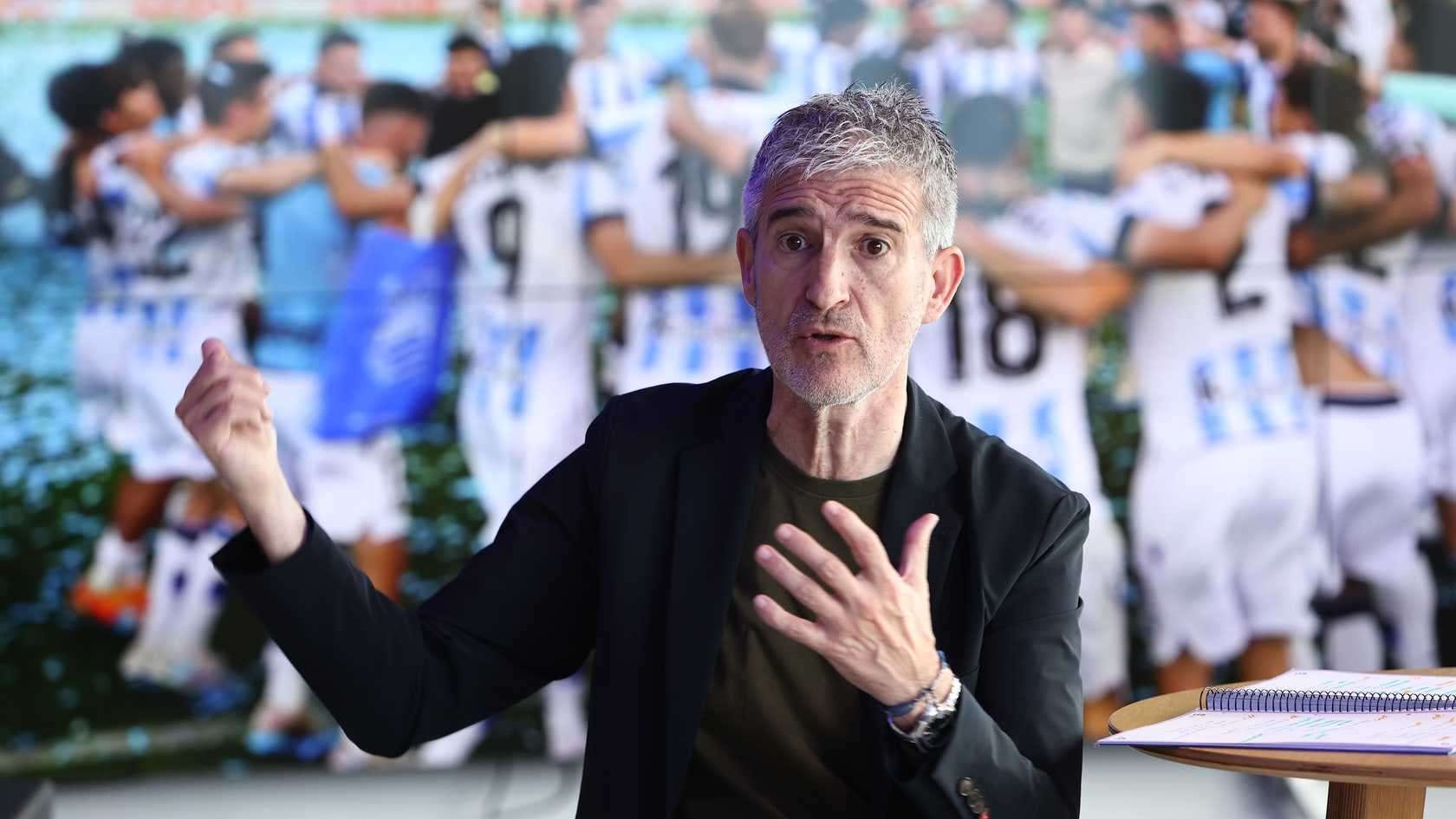
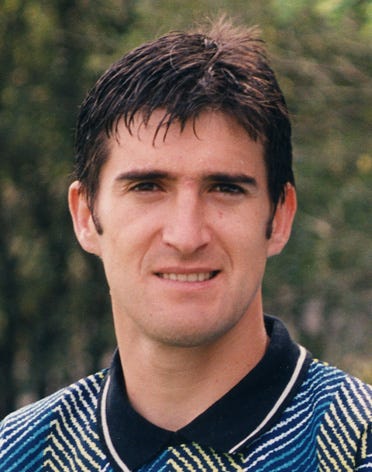
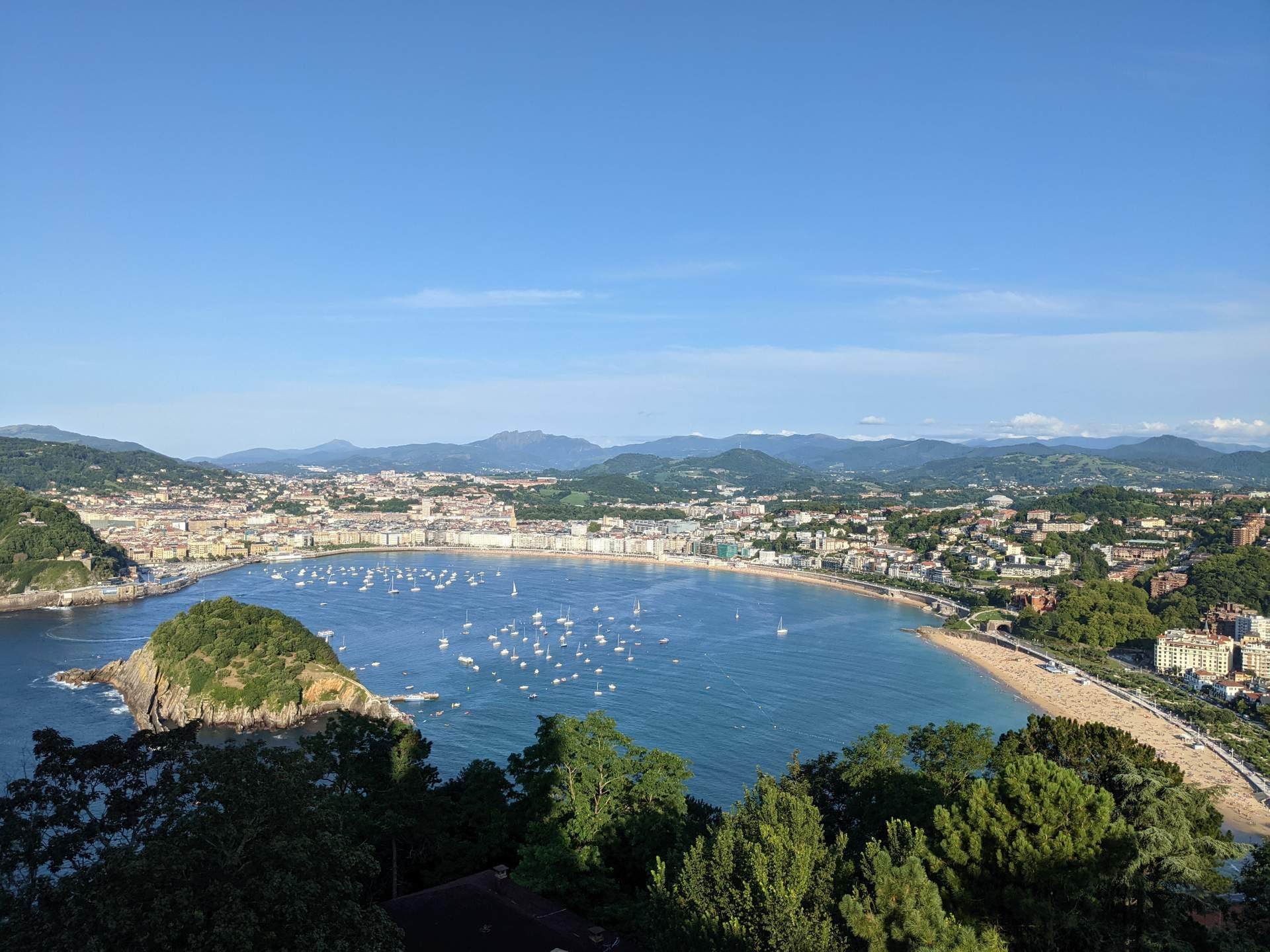

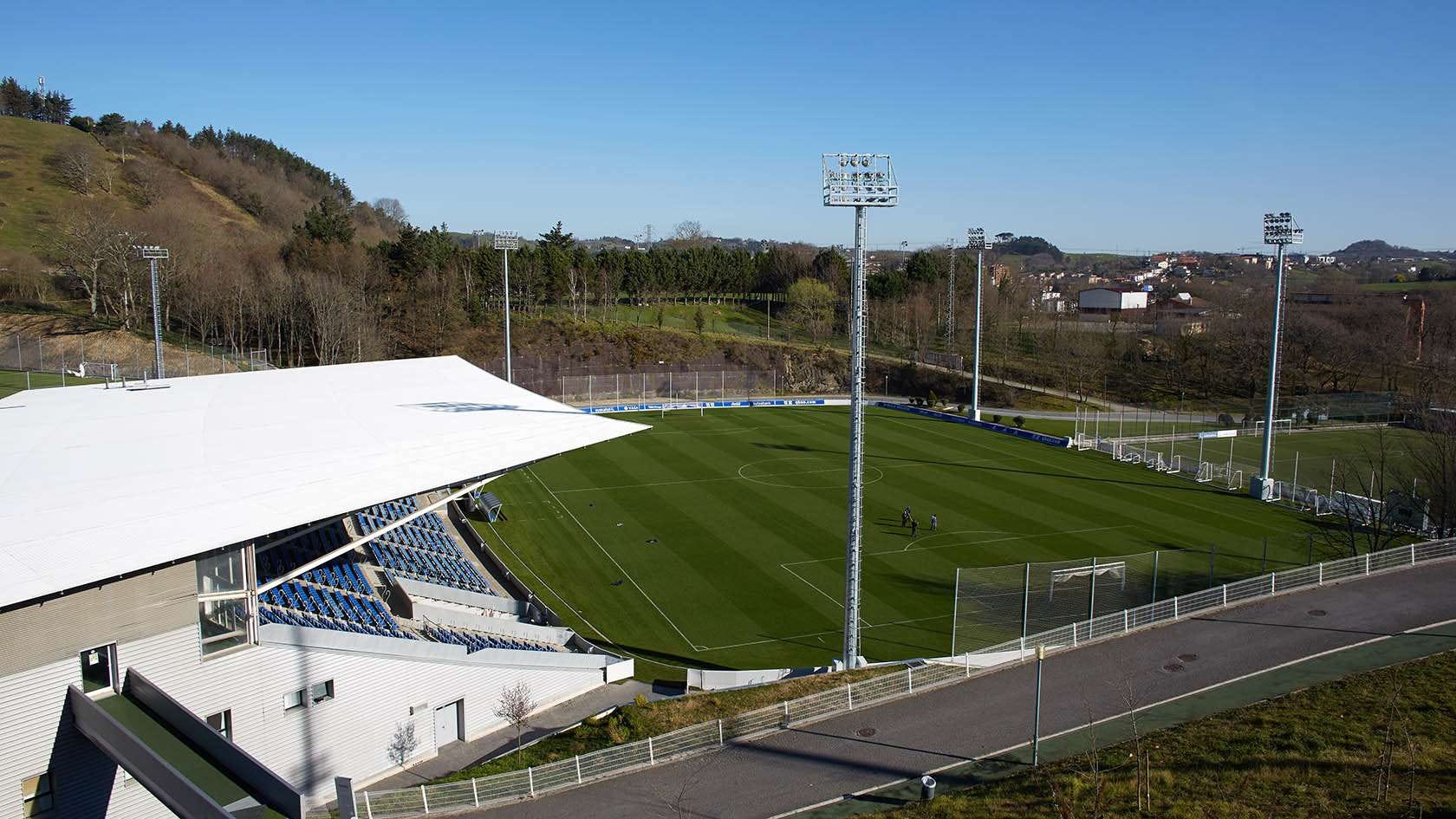

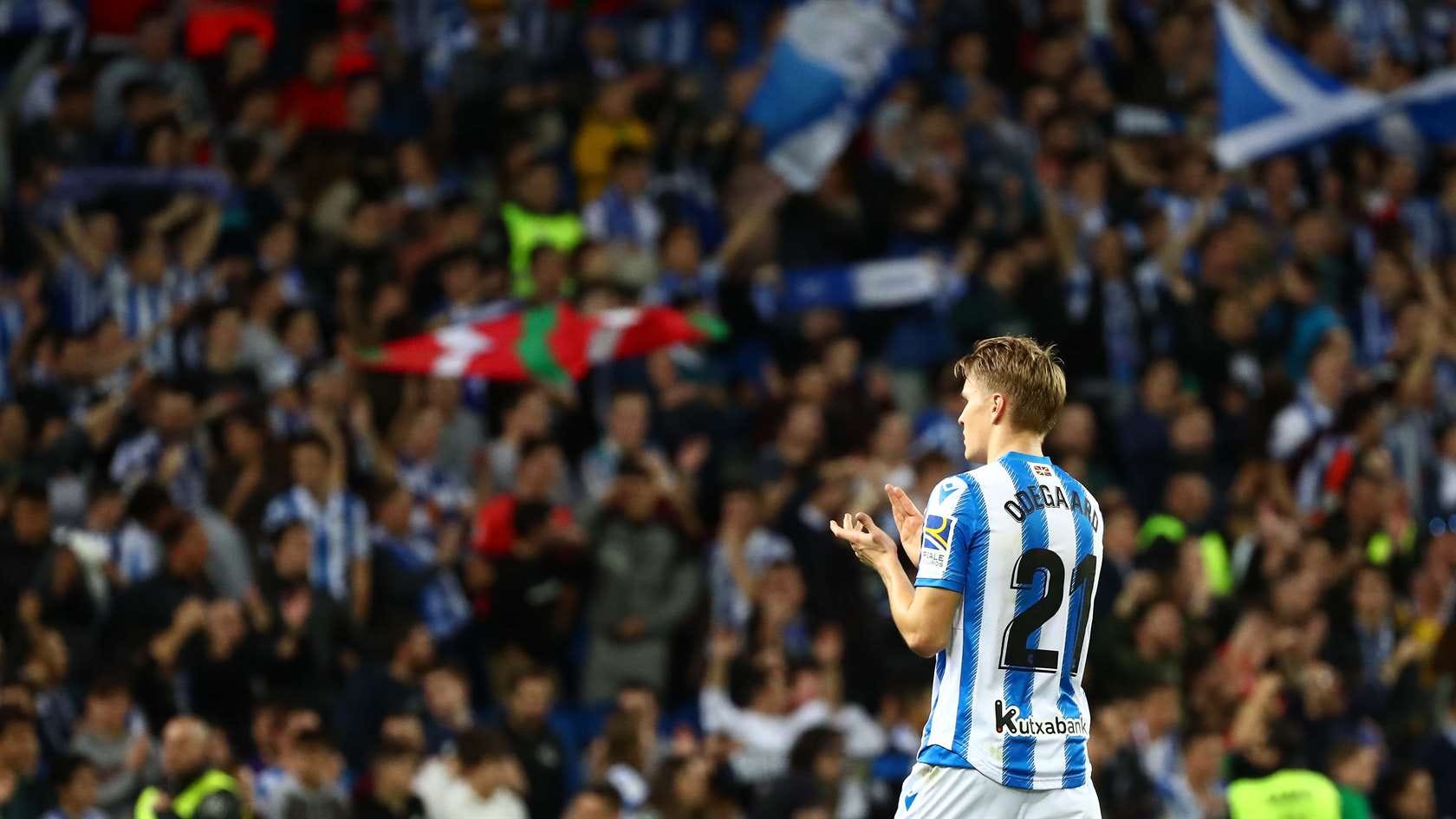

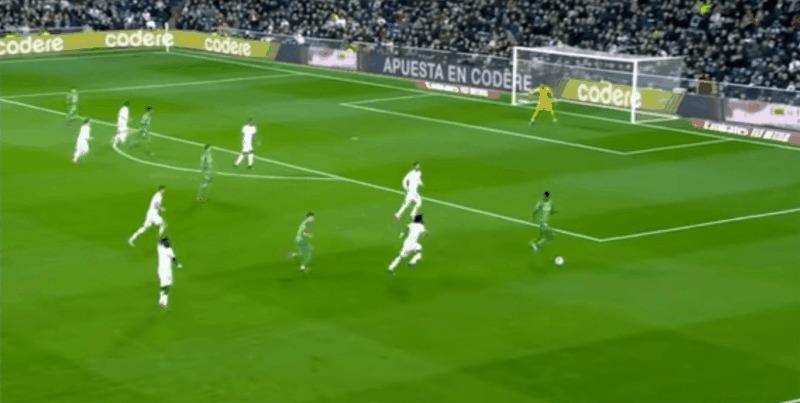
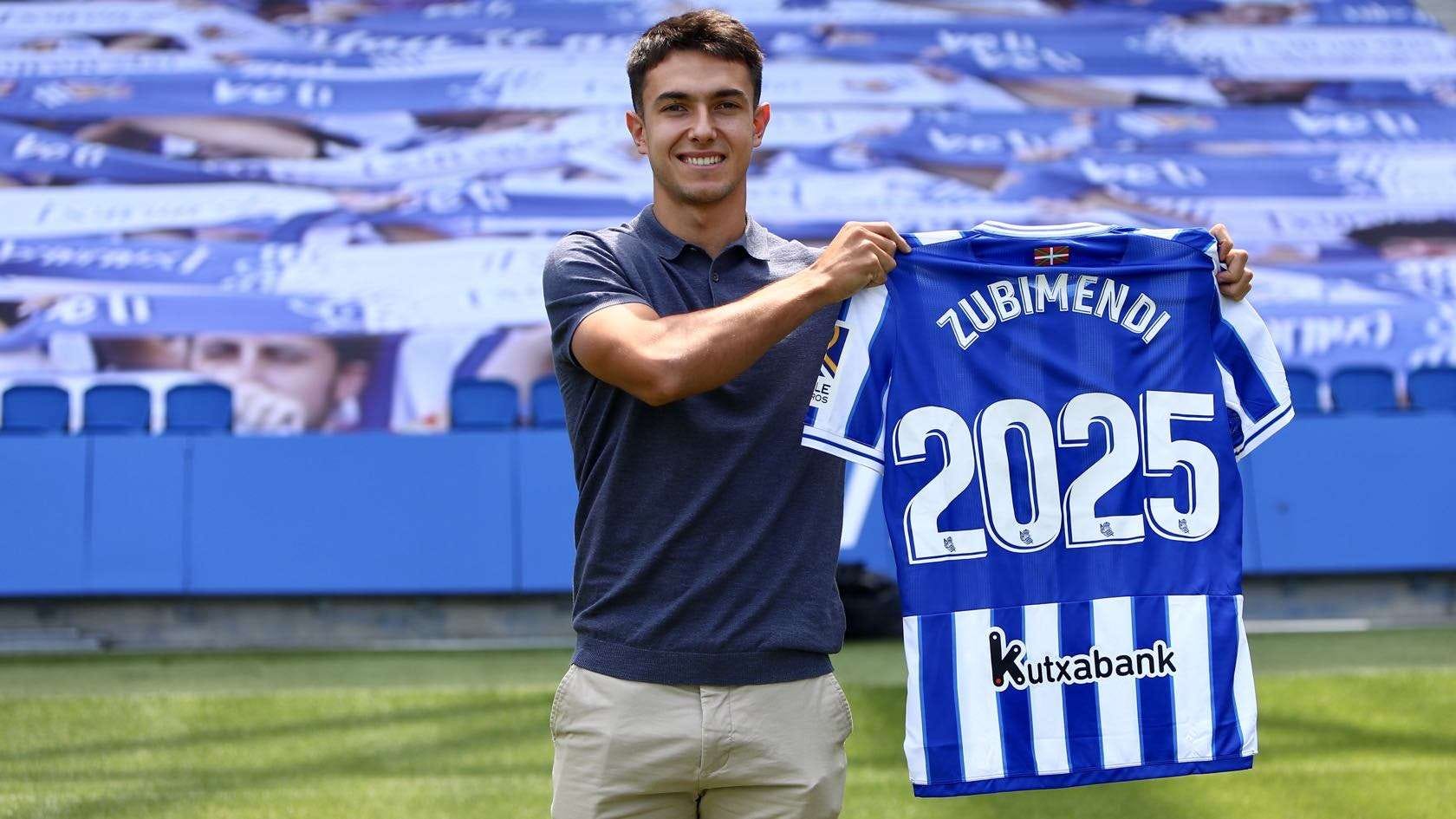



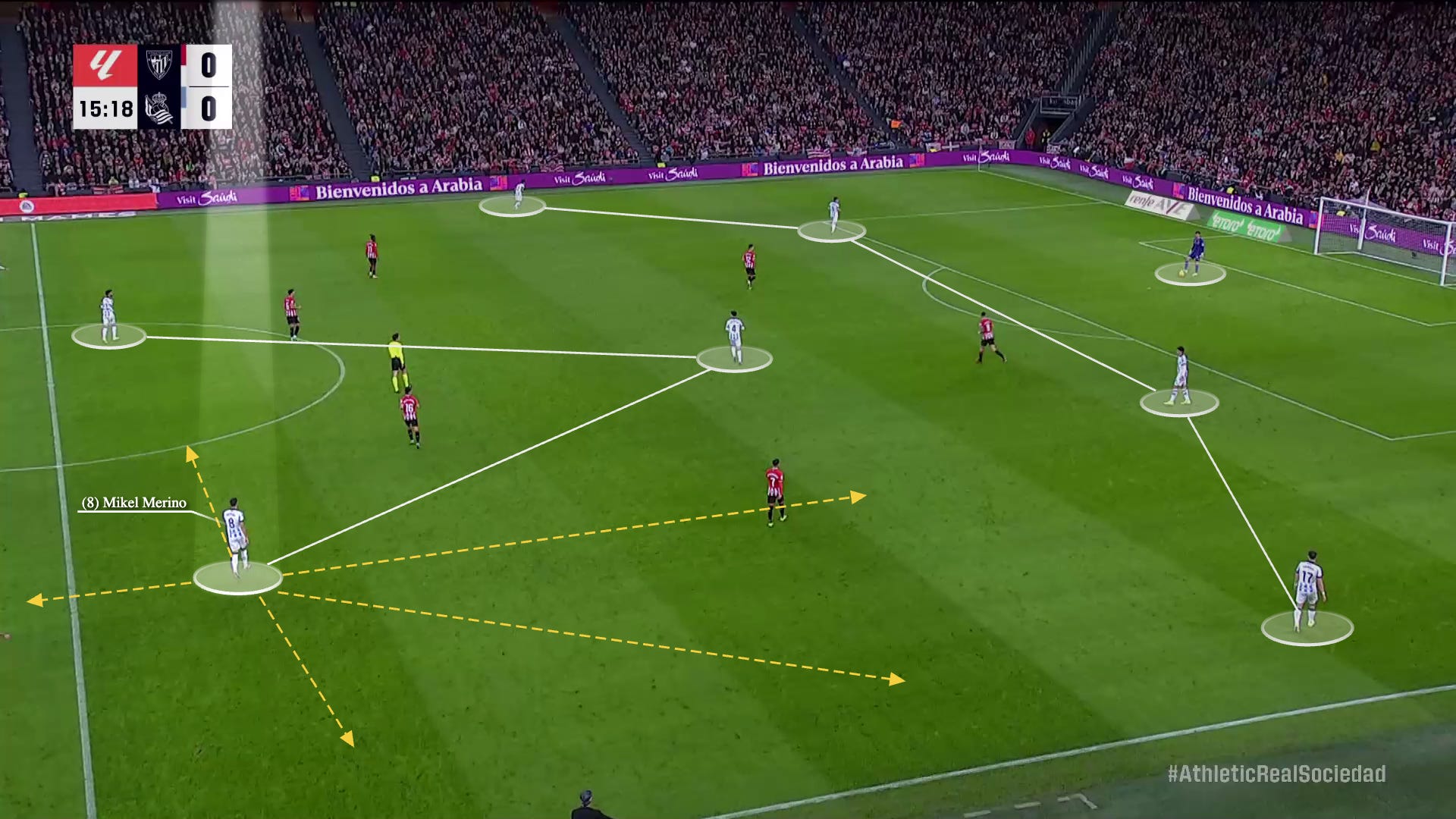


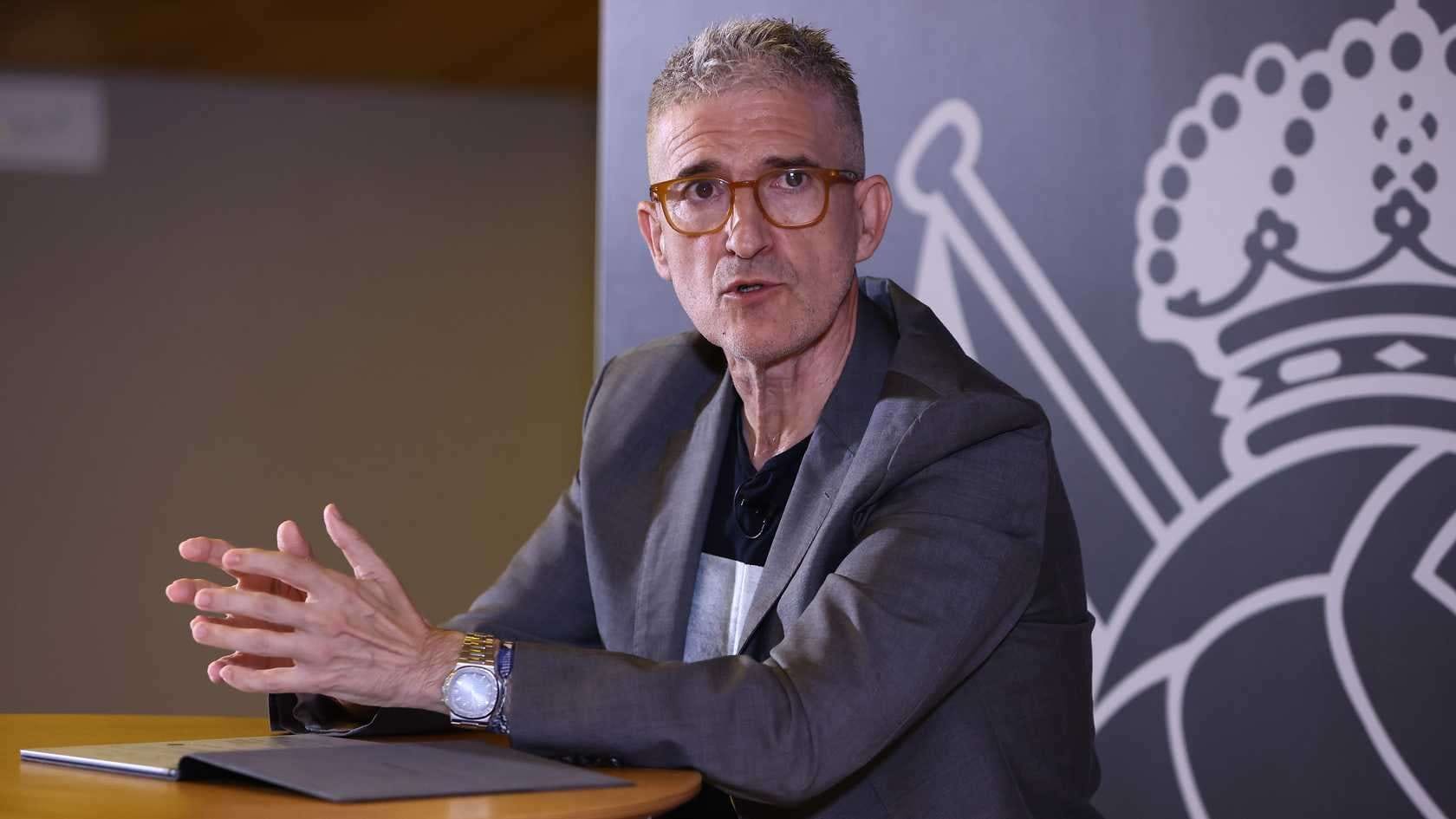
Your usual well-researched and presented analysis - thank you.
Two additional thoughts. If all goes well, Mikel is likely to leave in a three to five year timeframe (obviously if things deteriorate - which I don't expect - this could be a shorter time period; equally, if he's successful, Mikel may choose to stay at a club he loves and good luck to him). Hiring a Sporting Director who can plan and manage that transition would be a positive.
Secondly, I read Olabe's profile to some extent as 'big fish, small pool' and if Arsenal is to continue along its existing self-funded model, perhaps this is the right way to go. Stories that the club is investigating whether an 80,000 capacity stadium would be viable make me wonder whether KSE is looking for a quantum shift - one that would enable Arsenal to go toe-to-toe with oil state backed clubs. In that context, a Campos (or equivalent) would be a better fit than someone whose greatest strength is integrating youth and bargain signing players.
Interesting subject to cover, and well worth the read. In today's day and age, I'd normally lean towards the sporting director having a more important/influential role over the manager as the latter tends to be recycled more quickly, but with Arteta already outlasting Edu and seemingly having very strong ties to the execs, I wonder how that could impact this hiring search.
Not to say Arteta shouldn't have input, but I'd worry slightly that too much involvement from Mikel could result in finding someone who's won't cover up his faults. As you put it, Olabe seems too simpatico with Arteta and not very complementary to get me overly excited, especially when you add in the scope of his work overall.
I think at this stage of the project, I'd hope Arsenal could pull the proven and experienced candidates as opposed to gambling on getting someone on the upswing as they did 5+ years ago. Somebody strong enough to command the respect of those already in place to challenge and progress us to that next level. Of course beyond the names you've listed I have no idea who that'd be, but if none of those top 5-10 names are available or interested, given the talent already in the building as well as the Kroenke connections to their other clubs, I'd be tempted to looking into the realms of other sports.
Regardless, change is scary but exciting and I'll be curious to see who they ultimately settle on!